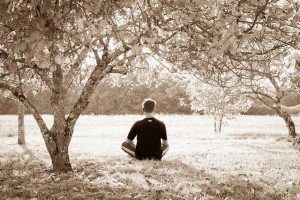While self-realization and spiritual growth is a profound goal to pursue, it is important to be mindful of the fact that spirituality is not a panacea for all our challenges. While spiritual progress offers pathways to heal our varied wounds, we also need to work at resolving our emotional and mental baggage. Unless we simultaneously focus on that, some of our emotional issues keep surfacing, even during the journey of spiritual growth.
For example, if we have grown up with a reserved personality, we are likely to remain aloof in our spiritual practice; if our competitive streak has been our psychological copout for feeling inadequate, we will probably be drawn to constant comparison of our spiritual progress with others; and if chasing success was our defense mechanism for not feeling loved, we may pursue spirituality with the same obsession.
Similarly, if spirituality offers possibilities of leading a more meaningful life, we can readily develop aversion for other lifestyles and judge others based on that. If we increasingly value a life of austerity, we run the risk of looking down on extravagant spenders. If we have begun experiencing greater peace, we can easily find accepting anger of people around us challenging.
Moreover, spiritual practice can become an escape from our emotional demons – issues of anger, loneliness, envy, aversion and judgmental nature; instead, it needs to be a path to face them. Working out our emotional past and conditioned mental patterns, alongside pursuing spiritual insights, paves the way for a more wholesome growth. For example, consciously working with our judgmental nature and limiting mental beliefs, acquired during childhood, can be very supportive in our journey.
Each of us desires to be loved – it’s our primal instinct. However, during our formative years, we subconsciously develop personality traits that seemingly best fulfill this need. Depending upon what helps us gain our parents’ love during childhood, be it conformity, winning, diplomacy, aggression, perfectionism, playing a…





















